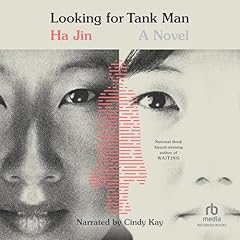
The Banished Immortal
A Life of Li Bai (Li Po)
No se pudo agregar al carrito
Solo puedes tener X títulos en el carrito para realizar el pago.
Add to Cart failed.
Por favor prueba de nuevo más tarde
Error al Agregar a Lista de Deseos.
Por favor prueba de nuevo más tarde
Error al eliminar de la lista de deseos.
Por favor prueba de nuevo más tarde
Error al añadir a tu biblioteca
Por favor intenta de nuevo
Error al seguir el podcast
Intenta nuevamente
Error al dejar de seguir el podcast
Intenta nuevamente
 Exclusivo para miembros Prime: ¿Nuevo en Audible? Obtén 2 audiolibros gratis con tu prueba.
Exclusivo para miembros Prime: ¿Nuevo en Audible? Obtén 2 audiolibros gratis con tu prueba.
Elige 1 audiolibro al mes de nuestra inigualable colección.
Acceso ilimitado a nuestro catálogo de más de 150,000 audiolibros y podcasts.
Accede a ofertas y descuentos exclusivos.
Premium Plus se renueva automáticamente por $14.95 al mes después de 30 días. Cancela en cualquier momento.
Compra ahora por $18.00
-
Narrado por:
-
David Shih
-
De:
-
Ha Jin
In his own time (701–762), Li Bai's poems—shaped by Daoist thought and characterized by their passion, romance, and lust for life—were never given their proper due by the official literary gatekeepers. Nonetheless, his lines rang out on the lips of court entertainers, tavern singers, soldiers, and writers throughout the Tang dynasty, and his deep desire for a higher, more perfect world gave rise to his nickname, the Banished Immortal. Today, Bai's verses are still taught to China's schoolchildren and recited at parties and toasts; they remain an inextricable part of the Chinese language.
With the instincts of a master novelist, Ha Jin draws on a wide range of historical and literary sources to weave the great poet's life story. He follows Bai from his origins on the western frontier to his ramblings travels as a young man, which were filled with filled with striving but also with merry abandon, as he raised cups of wine with friends and fellow poets. Ha Jin also takes us through the poet's later years—in which he became swept up in a military rebellion that altered the course of China's history—and the mysterious circumstances of his death, which are surrounded by legend.
The Banished Immortal is an extraordinary portrait of a poet who both transcended his time and was shaped by it, and whose ability to live, love, and mourn without reservation produced some of the most enduring verses.
Los oyentes también disfrutaron:




















Las personas que vieron esto también vieron:










Li Bai The Great soars beyond the mundane modern era
Se ha producido un error. Vuelve a intentarlo dentro de unos minutos.
Deep Dive Biography into Li Bai
Se ha producido un error. Vuelve a intentarlo dentro de unos minutos.
Wonderful story!
Se ha producido un error. Vuelve a intentarlo dentro de unos minutos.
David Shih's narration is spot on.
Standard Biography
Se ha producido un error. Vuelve a intentarlo dentro de unos minutos.
Great Biography!
Se ha producido un error. Vuelve a intentarlo dentro de unos minutos.


